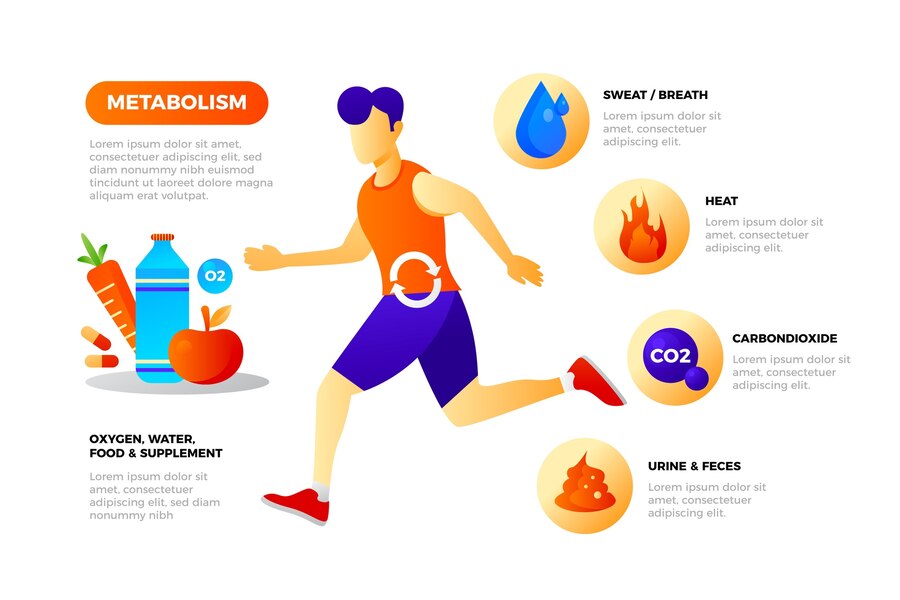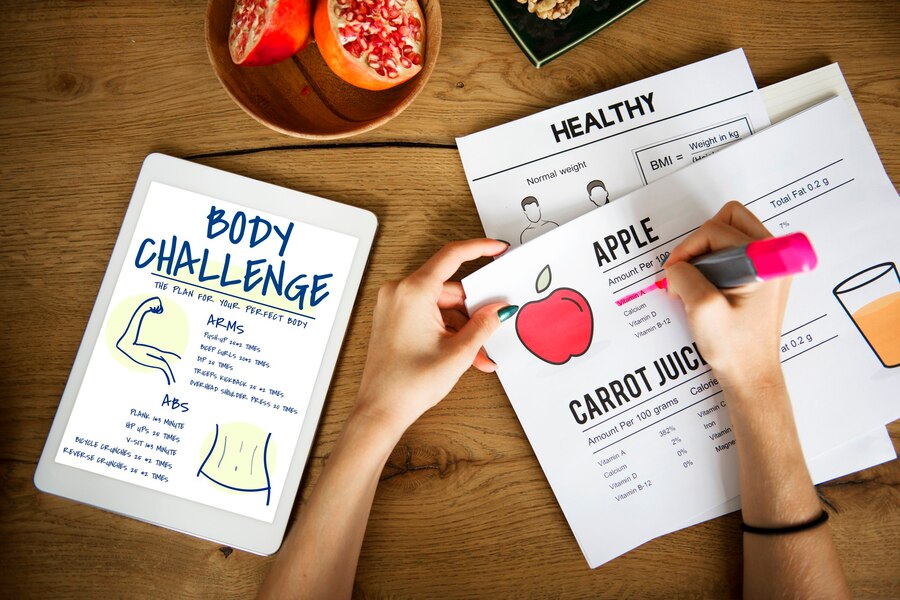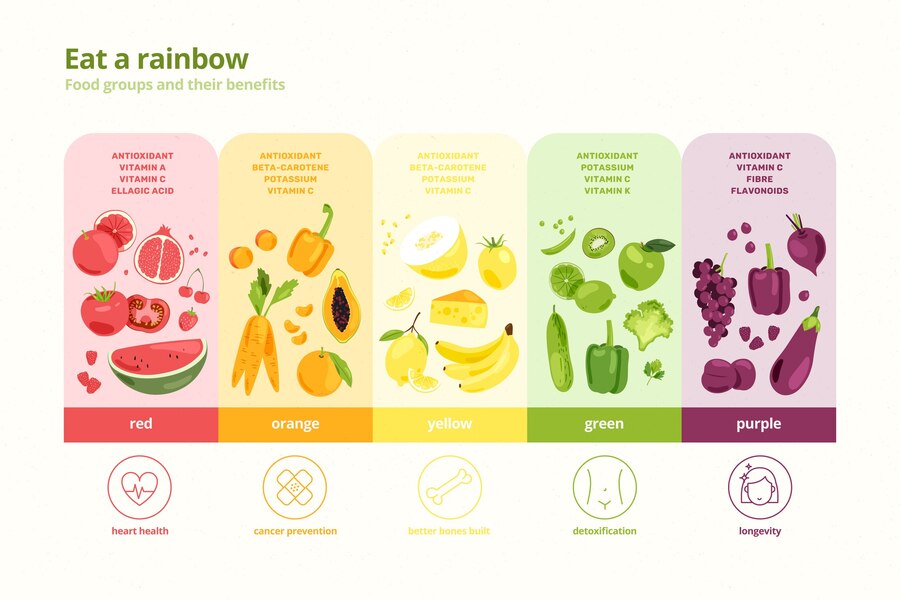The Connection Between Diet And Energy Levels
The connection between diet and energy levels is profound and multifaceted. The food we consume serves as the primary source of energy for our bodies, providing the necessary nutrients to fuel various physiological functions. Your body might become lethargic or experience low energy if it doesn’t receive enough nutrients and calories to support both mental and physical functions. So how precisely does diet impact your level of energy?
The Connection Between Diet And Energy Levels
It’s common to feel exhausted from time to time, and you may even have highs and lows during your menstrual cycle, particularly the week before your period is scheduled to start. Because progesterone levels are up and estrogen levels are falling, this is a pretty normal occurrence.
According to NHS research on the most common medical causes of fatigue, feeling fatigued occasionally is normal and is often alleviated by rest and sleep. On the other hand, a persistent sense of exhaustion or fatigue may signal a more serious underlying issue.
To operate at peak efficiency, your body need clean fuel, just like any other moving or functional thing. Your daily consumption of food and beverages provides your body with the fuel it needs.
Your body might become lethargic or experience low energy if it doesn’t receive enough macronutrients and calories to support both mental and physical functions. Remember that exhaustion might result from your body using more energy than you are consuming in the form of calories. This is true for binge eating as well. Taking precautions to prevent weight gain is especially crucial if you are going through menopause.
How Your Body Produces Energy From Macronutrients

Carbohydrates, lipids, and protein are the three primary nutrition groups (sometimes referred to as macronutrients) that the body uses as fuel between diet and energy levels .
A. Carbohydrates
Since they are the simplest macronutrients to digest, carbohydrates are used first to produce energy. The body needs less energy to break down simpler carbohydrates, like sugar, so even while they may provide a brief energy boost, their energy content depletes more quickly.
B. Proteins And Fats
Because they need more energy to digest, proteins and fats often provide a continuous supply of energy and a longer-lasting sense of fullness. Never assume that you are getting enough protein in your diet.
Vitamins That Really Work To Increase Energy
Vitamins That Really Work To Increase Energy
1. Vitamin D – A 2013 study revealed that following therapy for vitamin deficiencies, those with low vitamin D levels had increased muscular efficiency.
2. Vitamin B12 – A 2016 study revealed that anemia or exhaustion brought on by a deficiency of B vitamins, particularly vitamin B12, can result in low energy.
3. Iron – Fatigue and low energy might result from an iron deficit. In 2012, research conducted on a group of menstrual women experiencing unexplained tiredness revealed that taking iron supplements for 12 weeks resulted in a 47.7% reduction in fatigue.
4. Vitamin C – Often referred to as the “powerhouse” of vitamins, a number of studies have shown a clear correlation between vitamin C consumption and elevated energy levels.
Top Eats for Here are some key aspects of the connection between diet and energy levels
Here are the top meals to pick from, along with a nutritional chart at the conclusion, after we’ve showed you the different vitamins and nutrients that may help you stay motivated.
- Oranges
- Avocados
- Broccoli
- Eggs
- Spinach
- Greek yogurt
- Bananas
- Sweet potatoes
- Whole grains (oatmeal)
- Quinoa
- Salmon
- Seeds (chia, pumpkin)
- Soybeans
- Chicken (breast)
- Berries (Blueberries, blackberries, strawberries)
- Dark Chocolate
Which Diet Provides Maximum Energy?
Dieting is a temporary tactic that works best when adhered to consistently. It is crucial to understand that eating a healthy, balanced diet that includes the foods listed in the preceding table is the greatest approach to maintaining your energy levels.
To achieve the greatest results, remember to provide yourself with the proper nutrition at each stage of the menstrual cycle. Additionally, it’s critical to maintain healthy eating practices when dining out.
Lifestyle Suggestions To Enhance The Effect Of Diet On Your Levels Of Energy

Now that you know the components to use to increase your energy levels, follow these easy lifestyle suggestions to get the most out of them.Here are some key aspects of the connection between diet and energy levels
1. Eat Small And Frequent Meals
Eating smaller meals often during the day is generally advised. By adopting this lifestyle change, you might feel less worn out. This is due to the fact that your brain requires a constant flow of nutrients in order to function properly, since it has limited energy reserves of its own.
2. Eat A Healthy Breakfast With Protein-Rich Foods
You may increase your energy and rebuild your glycogen levels to keep your metabolism going throughout the day by eating a nutritious, high-protein breakfast. According to research, folks who have a nutritious breakfast in the morning tend to be more physically active than those who don’t eat until later in the day since they are using more energy.
3. Don’t Forget Your Vitamins
As previously discussed (What nutrients give you energy), you need to take iron, vitamin B12, vitamin C, and vitamin D daily to maintain high energy levels. While multivitamin pills can assist meet most of these needs, a healthy, balanced diet will readily meet this need as well.
4. Drink Enough Water
According to WHO standards, an adult woman should consume around 11.5 cups (2.7 liters) of water daily.
5. Limit Alcohol
You can lose energy from alcohol, as was discussed in the preceding section. Having said that, you are welcome to enjoy it in moderation—ideally, a glass or two with supper. Two glasses of alcohol each day is the maximum amount that is advised.
6. Eat Dinner Early
One of the biggest reasons for lack of energy is lack of appropriate sleep. Your quality of sleep is greatly influenced by your diet as well. read more
According to research, it’s best to eat dinner at least three hours before going to bed so that your body has had time to deplete its energy and promote a more restful sleep pattern.
Conclusion
A person’s daily mood is greatly influenced by their diet. Although maintaining a healthy diet can be challenging at times, particularly given the responsibilities of daily living, the importance of proper nutrition cannot be overstated.
Recall that quantity does not always equal quality when it comes to eating. Make sure the food you eat is nutritious and good for your body. You may optimize your body’s potential and feel energized all day long with a good diet, consistent exercise, and certain lifestyle adjustments.
